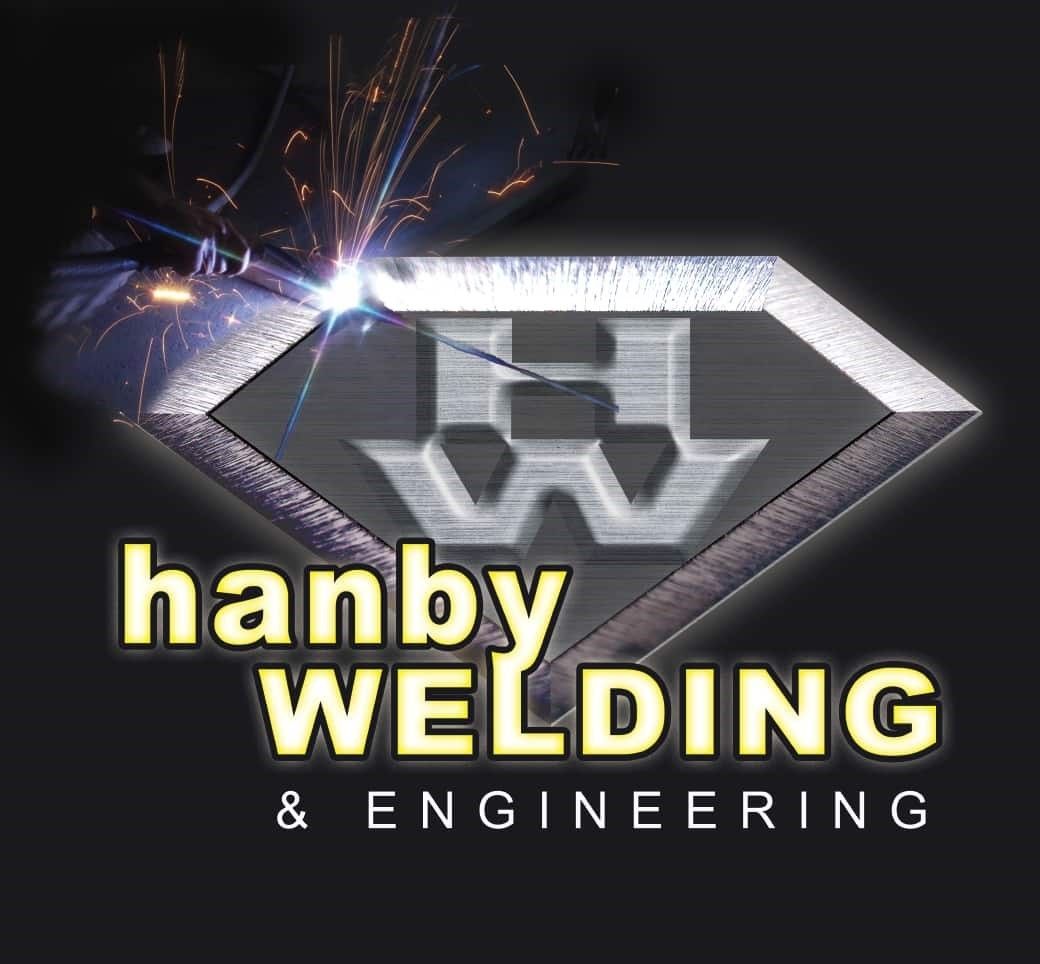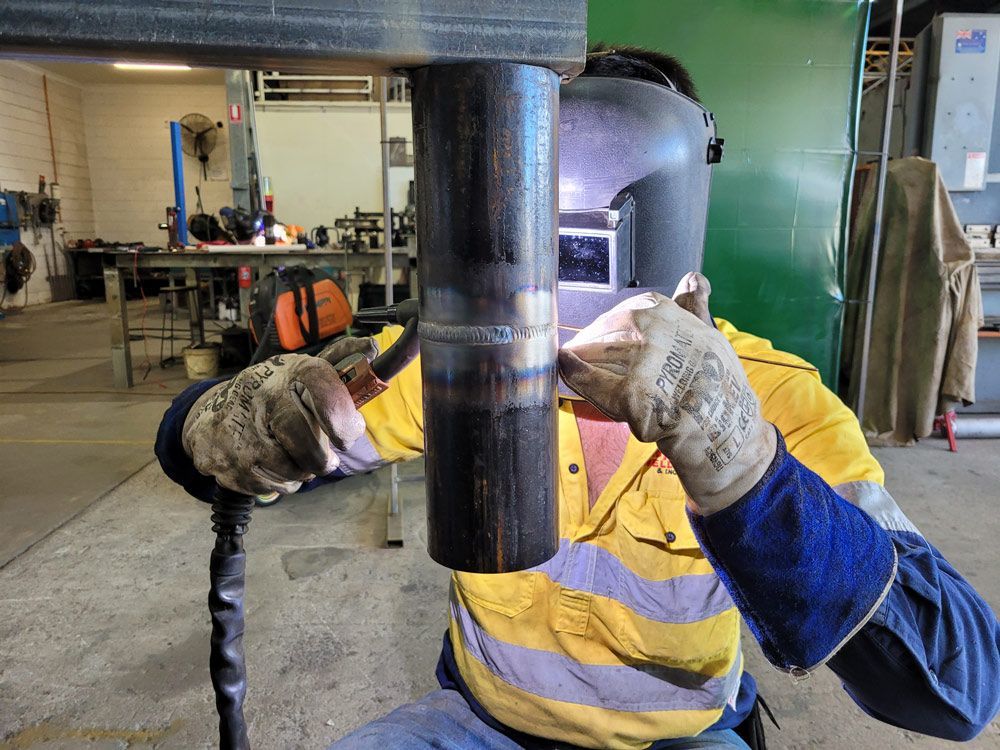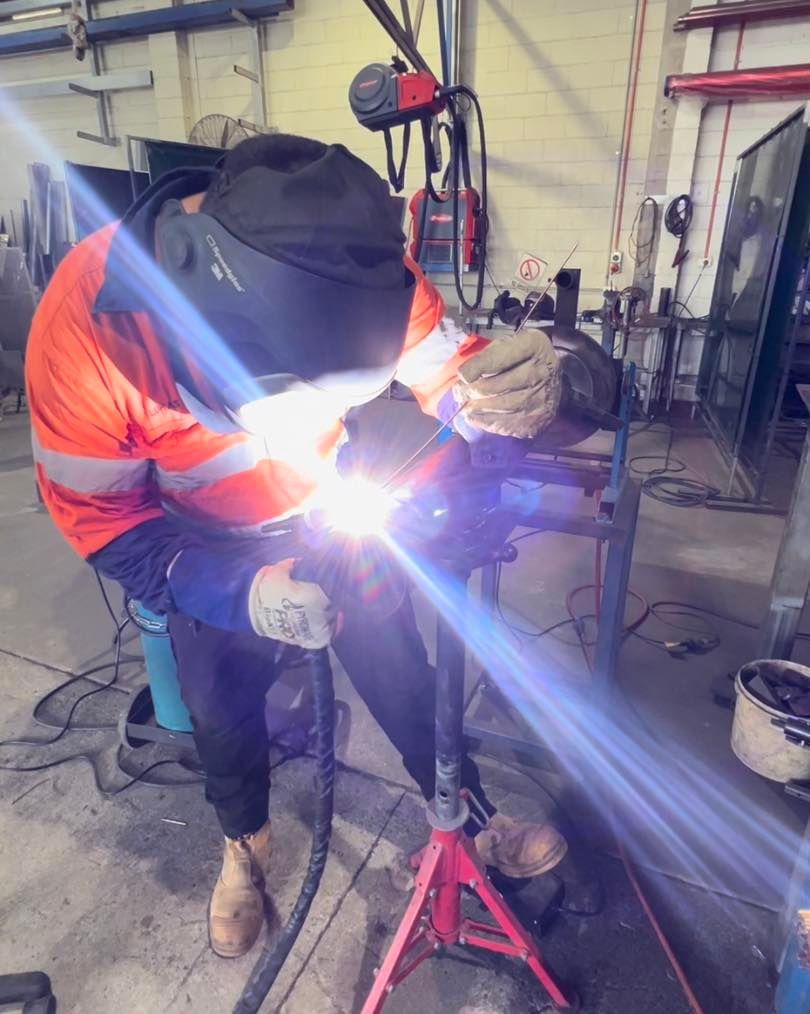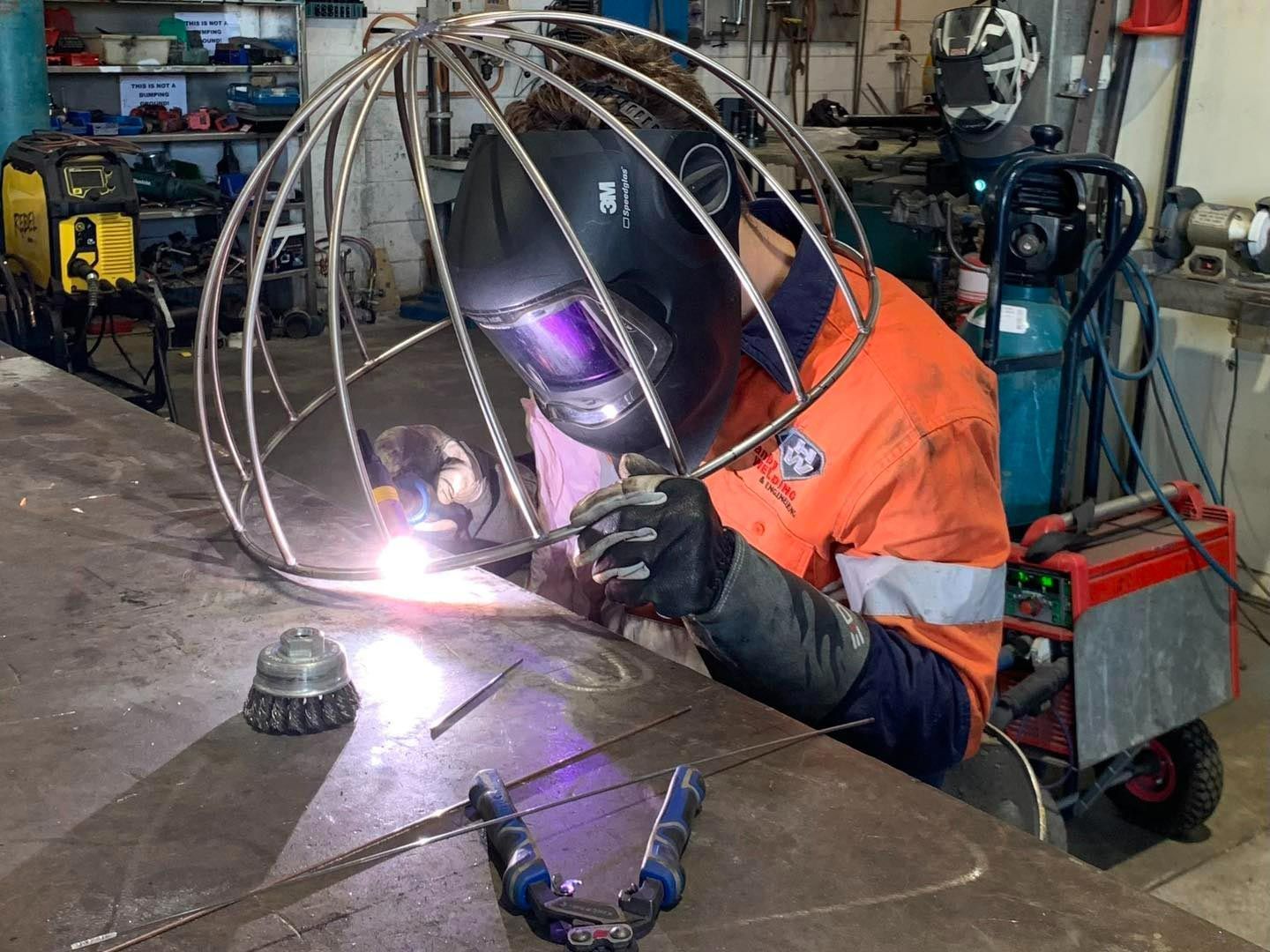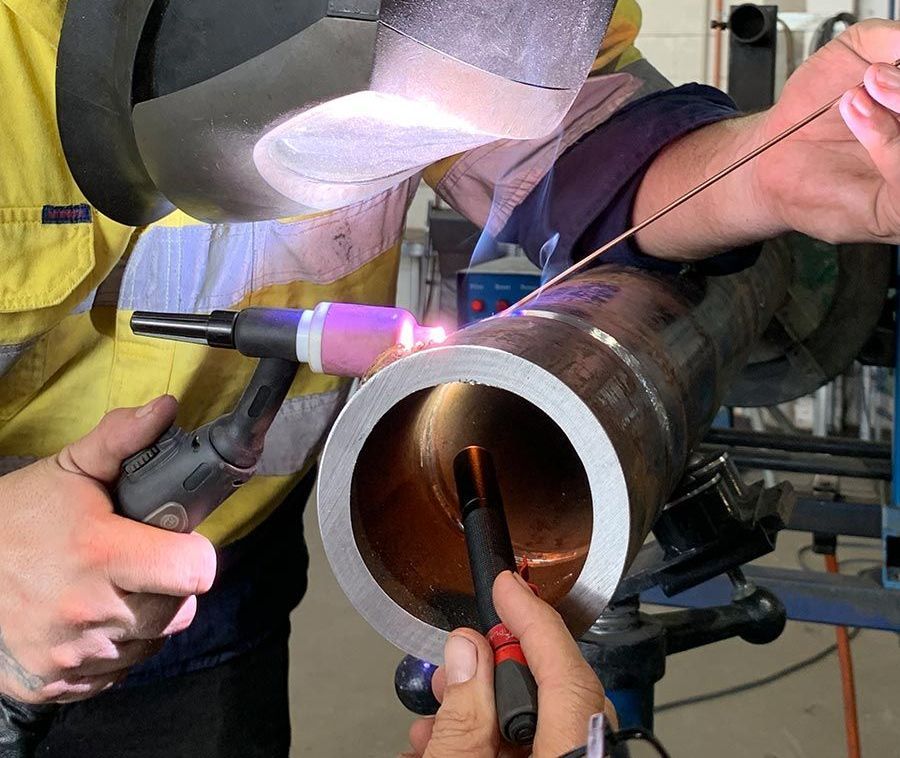Thinking of Hiring a Welder? Here’s Why Certification Matters
Hanby Welding & Engineering • August 24, 2025
Whether you're building a structural framework, installing security gates, or fabricating high-pressure pipelines, the quality of your welding work directly impacts your project's safety, durability and compliance. In a region like Cairns, where climate and conditions can place additional stress on metal structures, hiring skilled professionals is even more critical. And not just any welder will do—a certified welder brings assurance, precision, and professionalism to every job.
This blog explores why you should hire a certified welder and how it can distinguish between a safe, compliant outcome and an expensive, dangerous oversight.
Meets Australian Welding Standards
Australia’s strict welding codes are designed to uphold safety and quality across various applications. Standards such as AS/NZS 1554 (for structural steel welding) and AS 4041 (for pressure piping) set specific benchmarks for technique, material compatibility and testing procedures. A certified welder is trained and tested under these frameworks.
Key compliance benefits include:
- Reliable performance in structural or pressure environments
- Legal confidence that fabrication meets regulatory codes
- Seamless integration with project inspections and audits
- Greater assurance during insurance claims or dispute resolution
When you work with a certified welder, you're not just hiring a tradesperson—you’re securing a safer, more compliant result that holds up to scrutiny, whether by an engineer, auditor, or regulator.
Improves On-Site Safety
Welding isn’t just about fusing metal—it’s a high-risk trade involving intense heat, high-pressure tools, and potentially hazardous environments. From confined spaces to elevated work platforms, the dangers increase when proper procedures aren’t followed. Certified welders are trained in welding techniques and safety protocols, risk management, and hazard awareness.
Their training equips them to evaluate materials, select the right methods, and carry out each weld in a way that prioritises site safety from start to finish.
Choosing a certified professional helps reduce:
- Structural collapse or failure from poor welds
- Workplace accidents due to improper technique
- Equipment damage from undetected welding flaws
In residential and industrial settings, using certified welders significantly lowers the chance of problems, making them a key asset in any risk-managed project.
Ensures Structural Strength
Weld integrity is critical in structural and high-pressure applications. A single flaw can compromise an entire framework, putting people and assets at risk. Certification ensures that welders are not only technically skilled but also trained to handle the demands of real-world conditions, particularly those found in sectors like construction, agriculture, marine, and mining.
Certified welders undergo rigorous testing that simulates the types of loads, vibrations, and pressures their welds will face in service. This validates both the welder’s technique and the reliability of the welds they produce.
This means:
- Welded joints are tested for load resistance and fatigue
- Materials are matched and fused using techniques suitable for long-term stability
- Workmanship passes both visual and non-destructive testing (NDT)
In Cairns’ diverse industries—whether construction, agriculture or mining—ensuring weld integrity means fewer failures and longer-lasting infrastructure.
Handles Complex Welds
Certified welders aren’t limited to one type of task. Their qualifications often span several disciplines—residential, structural, and pressure welding—making them ideal for jobs that require a blend of skills.
Residential tasks include:
- Custom aluminium or steel gates and fences
- Security screen framing or window grilles
- Carports, trailers and steel stair fabrication
Industrial capabilities often cover:
- Pressure pipe welding
- Structural steel framework and platforms
- Heavy equipment repairs and site fabrication
Whether you're a homeowner or a project manager, certification assures you that your welder has the range and readiness to handle the job’s complexity.
Reduces Costly Rework
Reworking a poor weld isn’t just frustrating—it’s costly, time-consuming and sometimes dangerous. Certified welders are tested for repeatable, accurate performance under pressure, significantly reducing the chance of poor penetration, warping, or weak joints.
They bring:
- Proven welding procedures (WPS) that match materials and conditions
- Proper prep, fit-up, and post-weld checks
- Knowledge of defect identification during and after welding
These practices reduce job delays, waste of materials and client dissatisfaction. The cost of hiring uncertified welders can multiply quickly when poor work needs to be undone and redone.
Supports Compliance Docs
Whether you're applying for permits, completing a government-funded project, or undergoing a quality assurance audit, certified welders simplify the paper trail.
They help with:
- Welding Procedure Specifications (WPS) and Procedure Qualification Records (PQR)
- Material Traceability and Inspection Test Plans (ITP)
- Certifications tied to AS/NZS and ISO standards for quality assurance
This is particularly useful in:
- Commercial projects requiring engineering sign-off
- Fabrication jobs tied to public safety (e.g. guardrails, pedestrian bridges)
- Pressure systems requiring formal compliance submissions
By hiring certified professionals, you're partnering with someone who understands and supports your compliance obligations—not creating a roadblock.
Spot Defects Early
The certification process involves learning to visually inspect welds and interpret testing results. This means certified welders can self-check their work and identify issues immediately rather than requiring an external inspector after the job is done.
Benefits include:
- Reduced wait times for third-party assessments
- Early correction of defects like porosity or undercutting
- Streamlined workflow that keeps your project on track
A welder who can build and inspect simultaneously is valuable, especially in tight-schedule environments.
Builds Client Trust
Hiring a certified welder is not just about technical outcomes—it speaks volumes about your professionalism and the quality of your team. Whether you're a contractor, project manager, or small business owner, your choice of welder is part of your brand.
Benefits of working with certified professionals:
- Boosts confidence with clients and subcontractors
- Enhances your eligibility for high-tier tenders and contracts
- Reduces insurance risk and enhances due diligence
Word-of-mouth and reputation carry weight; hiring certified welders positions you as a trusted, capable operator who takes safety and compliance seriously.
Looking for Certified Welders Near You? Let’s Talk
At Hanby Welding & Engineering, we offer certified welding services across Cairns and the surrounding areas. From mobile welding and structural fabrication to high-pressure pipe welding and custom metalwork, our certified team delivers quality results that meet Australian standards.
Let’s discuss your project requirements—whether structural, residential, or industrial. Call us for more information or to book a certified welding service in Cairns that meets your needs.
